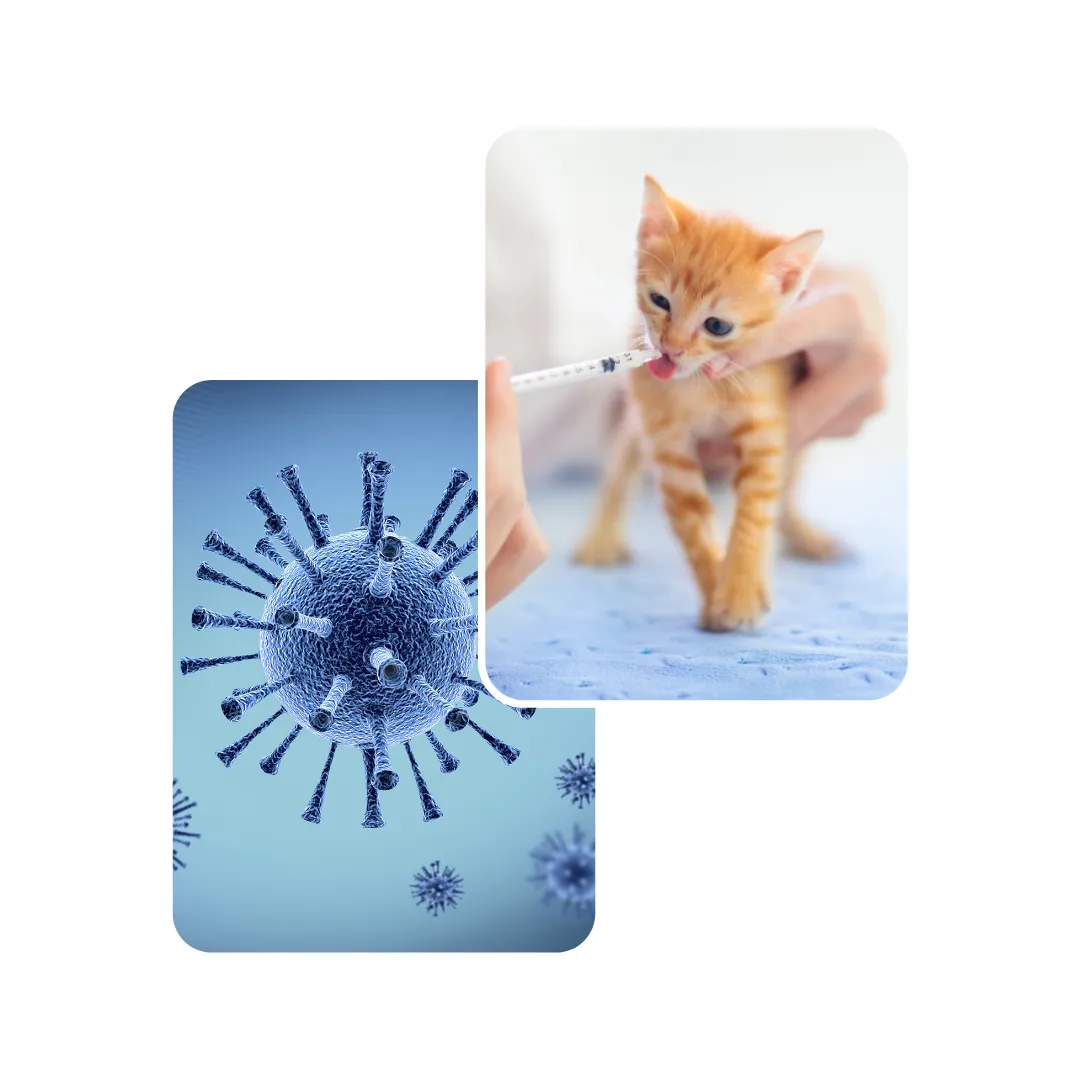
A cat virus spreads through close contact, shared food bowls, saliva, blood or even from a mother cat to her kittens. Outdoor cats or those in multi-cat households, are at higher risk. Some viruses hide in the body and don’t cause symptoms until months or years later. Because viruses can’t be cured with antibiotics, prevention through vaccination and early care is essential.

Cats with viral infections may show:
Often seen with herpesvirus or calicivirus. The nose may run and breathing may sound congested.
Calicivirus often causes painful sores in the mouth, making it hard for cats to eat.
Seen in wet FIP, where fluid collects in the chest or abdomen, making cats look bloated or breathe heavily.
Watery, red or swollen eyes are common in cats with viral infections, sometimes with ulcers on the cornea.
Viruses often cause high temperature, leaving cats weak, sleepy or unwilling to play.
In dry FIP, cats may stumble, lose balance or have seizures as the nervous system is affected.
A cat virus is a disease caused by tiny infectious agents that attack a cat’s immune system, organs or respiratory system. Some cat viruses are mild, while others are life-threatening.
Viruses spread through saliva, blood, sneezing, grooming or even from mother to kittens. Outdoor cats and those living in groups are most at risk.
Most cat viruses cannot be completely cured, but supportive care and antiviral treatments can manage symptoms and improve quality of life. Vaccination prevents many viral diseases.
The most common are FIV (feline immunodeficiency virus), FeLV (feline leukemia virus), FIP (feline infectious peritonitis), herpesvirus and calicivirus.
Sneezing, runny nose, watery eyes, ulcers, weight loss and lethargy are common. If your cat shows breathing problems, seizures or sudden bloating, seek urgent care.
Routine vaccination, keeping cats indoors, and regular vet check-ups are the best protection.
Just click the Appointment button or call us directly. Early care makes a huge difference in managing viral diseases.
Your pet deserves expert care – Subscribe now for trusted tips and updates from our pet experts.
